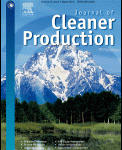Climate co-benefits approach in urban Asia: Understanding how to promote win–win situations in climate change mitigation, local environmental quality and development in Asian cities
Call for papers for a special issue of the Journal of Cleaner Production
Deadline for submissions of the first draft: June 20, 2012.
 Urbanization, particularly in Asia, is taking place in an unprecedented scale posing tremendous technical and institutional challenges to reduce its impact at the local, regional and global levels. Many cities face the tasks of tackling global environmental problems, such as climate change, besides the traditional local environmental problems, such as air and water pollution, while seeking to fulfil the growing demands for jobs, housing, education, health care and transportation. Despite growing efforts to introduce urban management policies and projects, the environmental quality of cities in many Asian countries remains unsatisfactory and is even worsening, both concerning the local and global environmental impacts. There are a large number of interesting projects, designed to address these types of complex issues, but their individual effects are not enough to change the course of the environmental degradation in those cities. One of the reasons for these under-achievements is that policies have addressed specific environmental problems in isolation. Urban environmental management in specific sectors and projects has not considered the mutual impacts and interactions of policies and practices in different sectors, as well as how to scale up innovative changes on a city-wide or regional basis.
Urbanization, particularly in Asia, is taking place in an unprecedented scale posing tremendous technical and institutional challenges to reduce its impact at the local, regional and global levels. Many cities face the tasks of tackling global environmental problems, such as climate change, besides the traditional local environmental problems, such as air and water pollution, while seeking to fulfil the growing demands for jobs, housing, education, health care and transportation. Despite growing efforts to introduce urban management policies and projects, the environmental quality of cities in many Asian countries remains unsatisfactory and is even worsening, both concerning the local and global environmental impacts. There are a large number of interesting projects, designed to address these types of complex issues, but their individual effects are not enough to change the course of the environmental degradation in those cities. One of the reasons for these under-achievements is that policies have addressed specific environmental problems in isolation. Urban environmental management in specific sectors and projects has not considered the mutual impacts and interactions of policies and practices in different sectors, as well as how to scale up innovative changes on a city-wide or regional basis.
Climate co-benefits is an approach designed to address both global and local environmental problems while contributing to the local development needs. The co-benefits approach is relevant, especially for developing countries, which have to overcome many environment and development challenges with limited capacity and resources within a rapidly growing urbanizing context. Addressing the social and environmental dimensions at both the local and global levels simultaneously makes co-benefits approach very attractive to policy makers, city planners and citizens, generally.
This Special Issue (SI) provides the opportunity for scholars, practitioners and governmental officials to co-work to gain more complete understandings on how cities can generate solutions that have large, short and long-term positive benefits in terms of climate co-benefits. This SI is designed to attract authors to submit papers, which document the processes, results and potential broader applications of co-benefit research in different sectors from different Asian countries. The authors are challenged to determine the factors that need to be analyzed in order to catalyze radical urban changes, particularly concerning climate change mitigation.
For more information please see attached announcement or visit http://www.sciencedirect.com/science/article/pii/S0959652612001965